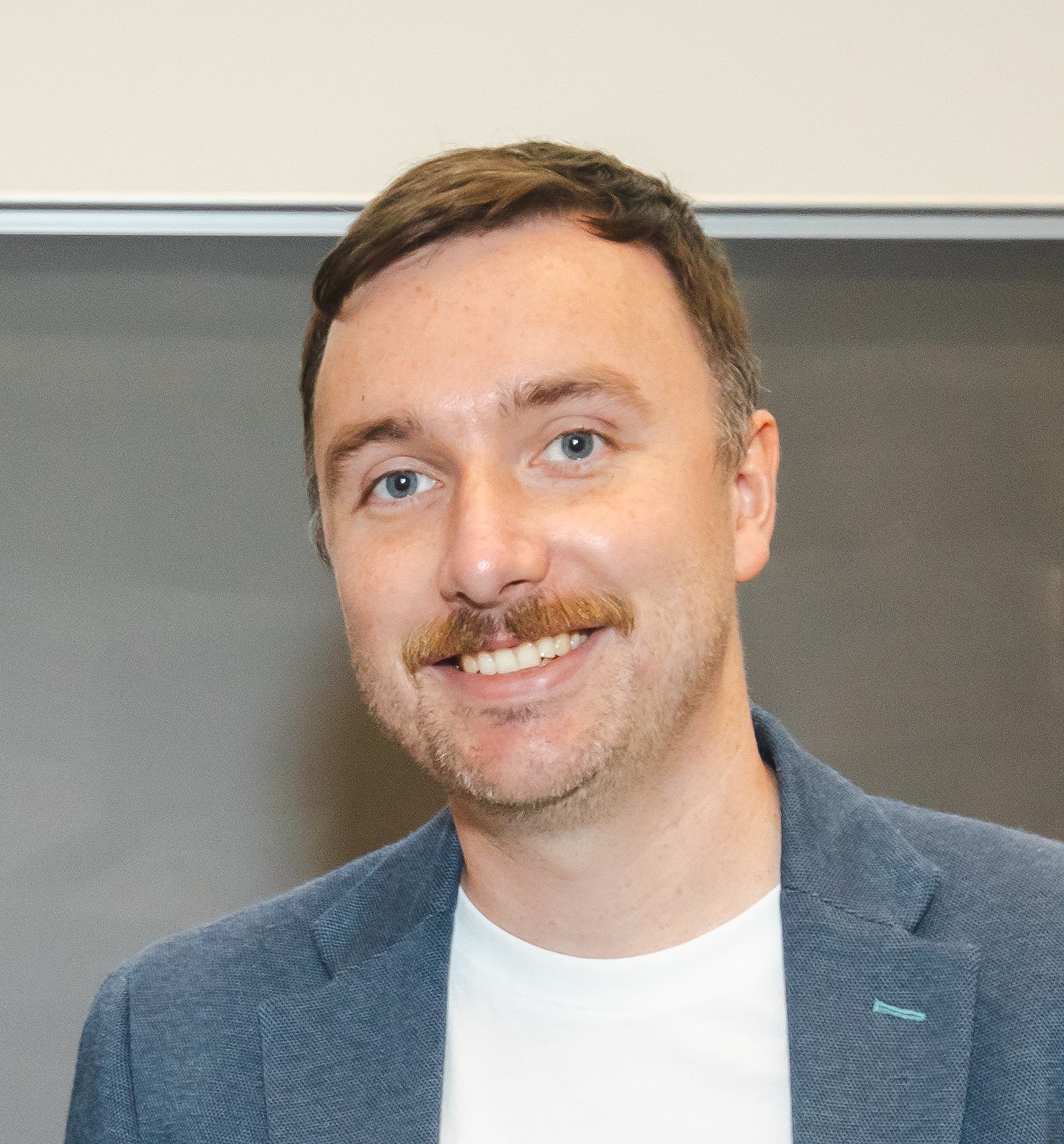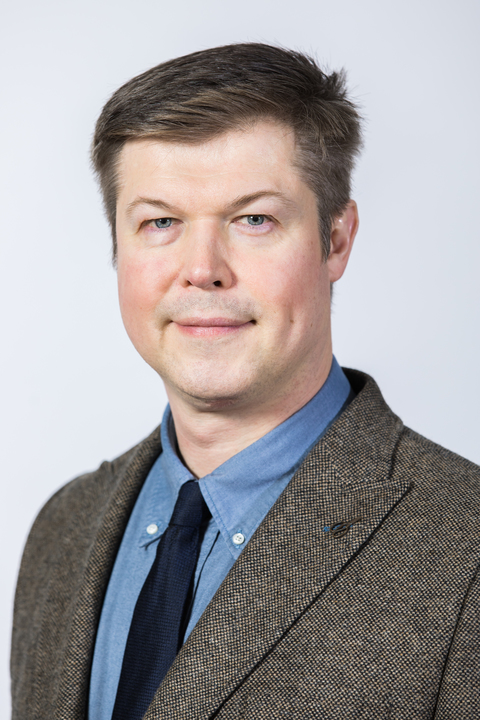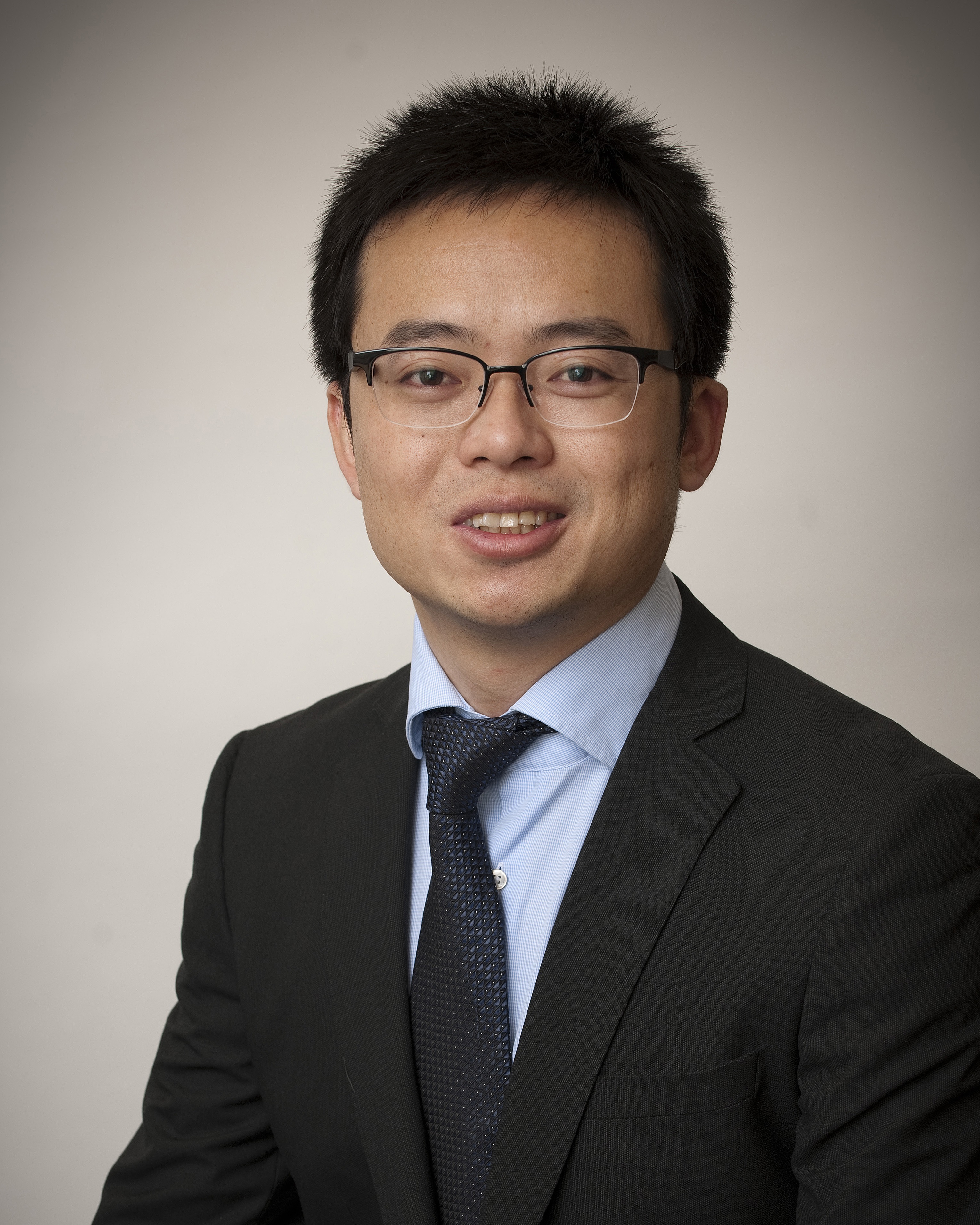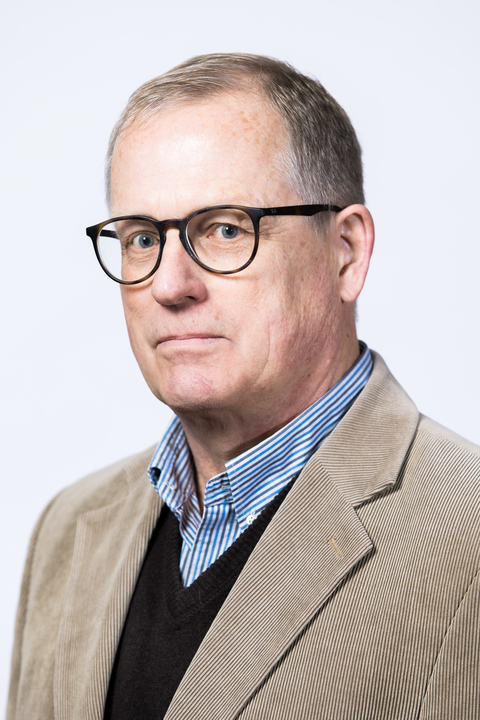
Mechanical Engineering

I am a Lecturer in Mechanical Engineering within the Institute for Energy Systems (IES) at the University of Edinburgh. My background is in energy storage, marine energy testing facility design, and turbomachinery.
My current main interest is energy storage, which will be a key component in the low carbon sustainable energy systems of the future. Energy storage is currently the missing link between energy use and the temporal variation in the power supplied by renewable generation. I am currently working to resolve some of the key challenges related to energy storage, recovery and engineering at ultra-high temperatures. Storage at such temperatures would unlock energy densities superior to mechanical and comparable to electro-chemical methods, whilst not being limited by location or cycle degradation, or the need to use rare construction materials.
My other interests include improving our ability to generate sea-representative conditions within experimental facilities. To this end I have pioneered the “isolating inlet” and the “water-wave filter”: the isolating inlet allows waves and currents to be combined at greater speeds than ever before whilst maintaining realistic turbulence levels; the water-wave filter is the first useful tuneable passive filter known in fluid dynamics and can be used to remove the high frequency reflected waves that cannot be absorbed by a force-feedback wave-maker, consequently improving test realism and accuracy. Both discoveries have allowed step changes in test tank capabilities and are enabling technologies for fully 3D combined current and wave test tanks like FloWave. My current research in this area is focused on combining wind, wave and current flows accurately within experimental test facilities.
My doctoral work involved “Computational investigations into offtake flows with application to gas turbine bearing chambers” and was undertaken with Rolls-Royce at their University technology centre at Nottingham University.
I have worked extensively in industrial environments and have extensive design and project management experience in the aerospace sector. Having created numerical design tools for Rolls-Royce and worked on the bearing chamber cooling and lubrication system development within the Trent 1000 and BR725 engine programs. Earlier in my career I was employed as a project manager within the Rolls-Royce supply chain. I began my profession in engineering as a technical apprentice in press tool design. I am proud to have been awarded Chartered Engineer status and elected a member of the ImechE in recognition of my work in industry and academia.
- 2010, (PhD), ‘Computational investigations into offtake flows with application to gas turbine bearing chambers’, University of Nottingham, funded by Rolls-Royce
- 2006, Meng with distinction, Aerospace Systems Engineering, University of the West of England, Bristol.
- Chartered Engineer and member of the Institute of Mechanical Engineers (ImechE).
- Conceptual design for mechanical engineers 3.
- Mechanical engineering design 3.
- Mechanical design principles 3.
- Engineering design 1
Postdoctoral research associates
Dr James Young
“Materials for ultra–high temperature in energy storage and energy recovery”
Thermal energy storage has been limited, until now, to temperatures around 800 K. If this storage temperature can be raised without incurring unacceptable thermal losses, energy density and conversion efficiency to electricity could reach a point where grid-scale thermal storage becomes technically and economically attractive. At ultra-high temperatures (1800 K) radiative losses dominate. Although these emissions can be reduced, there is a limit beyond which energy losses can only be recovered through a heat pump. For a heat pump to survive these challenging temperatures, new materials and approaches are required to produce the critical components such as compressors, turbines and heat exchangers. To achieve high efficiency, compressors and turbines have highly stressed blades operating at elevated temperatures. For heat exchangers to achieve maximum surface area and therefore energy transfer within a compact volume, they must have a thin-walled honeycomb structure. The most important failure modes that must be considered at ultra-high temperatures include creep, oxidation, thermal shock, and fracture. These have been investigated in this project along with microstructural changes, wear and erosion, vibration, fouling and fatigue.https://www.eng.ed.ac.uk/about/people/mr-james-young
PhD students
Thibaut Desguers
“Ultra-high temperature heat transfer analysis and thermal insulation design”
With the advent of ultra-high temperature technologies (e.g. thermal energy storage), novel insulation designs are needed to prevent energy losses which can occur through convection, conduction or radiation. While a vacuum is an efficient solution against the former two, the latter proves more challenging. Within this framework, my work focuses on the theoretical, numerical and experimental modelling and analysis of mixed ultra-high temperature heat transfers in non-grey, semi-transparent and evacuated composite structures with temperature-dependent thermal conductivities. Specific geometries are studied that would provide both efficient high-temperature thermal insulation and sufficient mechanical support to sustain their surrounding structures
Aldo Eyres
“Modelling and optimisation of gas-solid heat exchangers”.
A modified Brayton cycle is employed to extract energy from the UHTS system. This cycle has been modified such that its source of heat is the high temperature core instead of a typical combustion chamber. Gas-solid heat exchangers are used to transfer heat from the solid core to the working fluid in the cycle. In order to optimise these heat exchangers, I am producing a numerical design tool that will predict the heat transfer rates and working fluid pressure losses for a specified heat exchanger design.
Haris Hussain
"Feasibility study of integration of UHTS with electrical grids "
This project aims to develop a numerical time-domain energy system model for optimization of ultra-high temperature thermal energy storage operated within national electrical grids. The performance evaluation is based on various relevant elements such as heat and electricity demand profiles, share of renewable energies in the system, charging/discharging cycle behavior, UHTS plant sizing and layout, operational reliability and cost competitiveness. This will lead to a deeper understanding of all relevant parameters, variables and constraints which contribute to optimum operation and design of ultra-high temperature thermal storage system at grid level.
Tarek Abdelsalam
“Ultra-High Temperature Thermal Energy Storage for Concentrated Solar Power”
This project investigates the potential of integrating a novel Ultra-High Temperature (>1500 K) thermal energy Storage (UHTS) system with concentrated solar power (CSP) technologies. This involves tackling technical challenges that restrain current CSP technologies from operating at temperatures higher than 1000 K. This integration will not only improve the economic feasibility of UHTS through sharing infrastructure and storing heat directly at point of generation but should also enable CSP power cycles to operate at a much higher temperature, which can have substantial thermodynamic benefits (theoretically estimated to enhance the thermal efficiency of power generation by 50%).
Sebastian Hudson
“Integration of an Ultra-High Temperature Energy Storage System into Conventional thermal Power Generation Sites.”
Description: This project investigates implementation of an Ultra-High Temperature Thermal Energy Store (UHTS) at existing power generation sites. The store may be discharged through the heating of an air stream which may provide an alternate heat source to power a turbine, reducing the fuel requirement. The benefits are to be quantified by the effect on the flue gas composition, investigated with the use of Computation Fluid Dynamics and validated with experimental data. The required alterations to existing turbines to allow the system to successfully operate are also to be outlined and designed.
James Ferguson
As second supervisor:
William Jamieson “Materials & Manufacturing Optimisation for Curved Wave Energy Device”
Sam Thompson

I am an applied economist and mathematician, trying to answer economic questions about engineering systems (energy and transportation) using mathematical tools, such as optimisation and complementarity modelling. See my full profile on: https://www.research.ed.ac.uk/portal/avander
- PhD Spatial Economics, Vrije Universiteit Amsterdam
- MSc Economics, University of Edinburgh
- BA(Hons), Liberal Arts & Sciences, University College Roosevelt
- Associate Researcher, Energy Policy Research Group, University of Cambridge
- Member, Energy Institute (MEI)
- Course Organiser and lecturer, Energy & Environmental Economics, MSc Sustainable Energy Systems
- Course Organiser and lecturer, Modern Economic Issues in Industry 5/MSc, Engineering MEng/MSc programmes
- Lecturer, Engineering Mathematics 2B, undergraduate Engineering programmes
- Guest lecturer, Energy & Climate, Online MSc Carbon Management (School of Geosciences)
- Personal Tutor
- Modelling electricity and transport networks and markets
- Optimisation and equilibrium modelling
- Energy and transport economics
- Industrial organisation / applied microeconomics
- Environmental economics

Dr Andrew Lyden is a Lecturer in Energy System Economics and Management within the Institute for Energy Systems. His research focus is on advancing open-source energy system science including data, models, and outputs. He is working on research and consultancy projects related to net-zero electricity markets, integrated multi-energy (electricity, heat, transport, food, water) markets and models, decarbonised district heating and cooling, and long-term energy storage technologies (e.g. underground thermal energy storage).
As part of his work on the INTEGRATE project (which focussing on modelling of the integration of multiple energy sources with seasonal thermal energy storage to decarbonise heat), he developed a transmission network model of the GB power system, PyPSA-GB, which can model historical years and National Grid's Future Energy Scenarios. During his PhD he worked on modelling local energy systems with particular interest on the optimal design and control of heat pumps and thermal storage. As part of this work he developed the open-source tool PyLESA (Python for Local Energy Systems Analysis). He has previously worked on numerous research and industry projects including topics such as future district heating design, community energy masterplanning, and virtual power plants.
- PhD in Renewable Energy Systems, University of Strathclyde, UK
- MSc in Renewable Energy Systems & the Environment, University of Strathclyde, UK
- BSc in Physics, University of Edinburgh, UK
- Course organiser - Energy & Environmental Economics MSc
- Supervisor - Sustainable Energy Systems Disseration MSc

I am Lecturer in Engineering Management, based in Mechanical Engineering and the Institute for Materials and Processes.
I am Deputy Director of the Institute for the Study of Science, Technology and Innovation (ISSTI) and of The New Real research programme and creative community.
I research and teach innovation process management, organisational, learning and future design and I coordinate the School of Engineering's Space and Satellite portfolio of projects as well as entrepreneurship and socio-economic research themes within Space Innovation Hub.
I co-coordinate several academic networks, in particular Social Dimensions of Outer Space, Social Network Analysis Scotland, and Social Studies of Outer Space.
You can find out more info on my personal research blog: https://blogs.ed.ac.uk/vidmar/
- PhD in Science and Technology (2020)
- MSc by Research in Science and Technology (2015)
- MSc in Science and Technology in Society (2014)
- BSc (Hon) Physics (2013)
- Fellow of Royal Astronomical Society
- Fellow of British Interplanetary Society
- Fellow of Higher Education Academy
- Member of the Institute of Physics
I am course organiser of the following courses:
- Technology and Innovation Management 5 / MSc
- Systems Engineering: Thinking and Practice 5 / MSc
- Social Dimensions of Astrobiology and Space Exploration
- Building Near Futures (in Edinburgh Futures Institute)
- Engineering Design 1
I am currently not accepting any new MSc or PhD students as main supervisor.
I am otherwise open to supervising PhD and MSc projects in innovation process management, organisational development, interdisciplinary engineering, futures design, technology strategies and prototyping methodology, especially in the fields of space and satellite and artificial intelligence.
My research centres on innovation management processes, entrepreneurship and organisational learning at the forefront of high-tech (systems) engineering, especially in space and satellite, geoinformation data and artificial intelligence.
I lead the development of NanoSpace Lab, connecting key processes and R&D infrastructure for small-scale Space Industry pathfinder projects.
I also co-lead The New Real programme on Experiential AI at the Edinburgh Futures Institute, in partnership with the Alan Turing Institute and funded by the EPSRC, AHRC, and Scottish Funding Council.
Recent publications can be found at Edinburgh Research Explorer

- PhD in Mechanical Engineering, University of Waterloo, Canada, 2010 Dissertation: Transport Phenomena in Cathode Catalyst Layer of PEM Fuel Cells (Advisor: Prof Xianguo Li)
- MSc in Mechanical Engineering, University of Alberta, Canada, 2003 Dissertation: Electrostatic Double Layer Interactions in Confined and Many-Body Geometries (Advisor: Prof Subir Bhattacharjee)
- MSc in Mechanical Engineering, BUET, Bangladesh, 2001 Thesis: Elastic-Plastic Behaviour of a Circular Rod under Combined Torque and Tension (Supervisor: Prof Abu Rayhan Md. Ali)
- BSc (Hons) in Mechanical Engineering, BUET, Bangladesh, 1998 Thesis: Experimental and Theoretical Investigation of a Solar Water Heater (Supervisor: Prof Md. Imtiaz Hossain)
Editorships Associate Editor in Electrochemical Engineering, Frontiers in Chemical Engineering (2022–date) Associate Editor, Journal of Electrochemical Energy Conversion and Storage (2021–date) Associate Editor in Fuel Cells, Electrolyzers and Membrane Reactors, Frontiers in Energy Research (2020–date)
Guest Editor for the special issue: Multiphysics, Multiphase, and Multiscale Modeling and Characterization of Porous Media in Electrochemical Energy Systems, Frontiers in Energy Research (2023) Lead Guest Editor for the special issue: Battery Management in Electric Vehicles: Current Status and Future Trends, Batteries (2022–2023) Lead Guest Editor of a special issue on Advanced Energy Materials and Research, Energies (2020–2021)
Editorial Board Member for section Battery Performance, Ageing, Reliability and Safety, Batteries (2022–date) Editorial Board Member of Renewable and Sustainable Energy (2022–date) Editorial Board Member for section D1: Advanced Energy Materials, Energies (2019–2023) Editorial Board Member for section Inventions and Innovation in Energy and Thermal/Fluidic Science, Inventions (2018–date)
Advisory Board Member, Challenges, MDPI (2020–date)
- Thermodynamics 4
- Professional Issues for Mechanical Engineers 3
- Sustainable Energy Systems Dissertation
- Mechanical Engineering Project 4


Dr Yang's current research interests focus on Composites Engineering (materials, manufacturing and structures) and Computational Engineering (multiscale, multiphysics, multiphase coupling). With a background in manufacturing and later experience in structural and materials engineering, his cross-disciplinary research is at the interfaces of underpinning material science, emerging manufacturing technologies and advanced structural analysis and design. He also develops computational techniques and deterministic models to address multiscale, multiphysics and multiphase coupling challenges across engineering disciplines.
- BEng in Mechanical Engineering, 2004.
- MSc in Mechanical Engineering, 2007.
- PhD in Civil Engineering, Leeds (with ORSAS scholarship), 2011.
CEng, FIMechE, FHEA
I welcome talented PhD candidates, postdoctoral fellows and academic/industrial visitors from various engineering disciplines to work on composites engineering and computational engineering.
There are various scholarship opportunities at Edinburgh, click the links below for more details:
Principal's Career Development PhD Scholarships
Edinburgh Global Research Scholarship
University of Edinburgh scholarships
Centre for Doctoral Training (CDT) scholarships
![Downes_0.jpg [photo of Andy Downes]](/sites/default/files/2024-12/Downes_0.jpg)
Andrew Downes - Google Scholar
Andrew studied at the University of Cambridge and was awarded a degree in Natural Sciences (Physics) in 1992. He continued in Cambridge for his PhD on nano-optical microscopy which was awarded in 1996. He remained in Cambridge as a Postdoc on the analysis of metallic nanowires until 1998, when he moved to Marseille to continue work on nano-optical microscopy and spectroscopy. He returned to Cambridge in 2001 to set up a nano-optical microscope, and in 2003-4 was at UCL working on nano-optical lithography.
In 2005 he moved to Edinburgh to work on nano-optical Raman microscopy. In 2006 he set up a Coherent anti-Stokes microscope for biological samples, and in 2007 was awarded an RCUK fellowship which converted into a lectureship in 2012. Research expanded to Raman spectroscopy, Atomic Force Microscopy mechanical measurements, and high-speed Raman imaging of biological samples. A common theme has been novel measurements, and pushing the limits of detection. In 2020 he was promoted to senior lecturer.
A recent focus has been the use of Raman spectroscopy in cancer and neurodegenerative diseases, investigating living cells and tissues and applying to accurate diagnosis.
PhD (Department of Engineering, University of Cambridge, 1996).
Senior Fellow of the Higher Education Academy (SFHEA) since 2017.
- Raman spectroscopy for analysis of biological materials, and disease diagnosis
- High-speed Raman (CARS, SRS) microscopy
- Equipment development for Raman spectroscopy and microscopy
- Nano-scale (tip-enhanced) Raman spectroscopy and microscopy

Mark Linne is an experimentalist who has worked in reacting flow-fields (sprays, combustion and fuel cells) and advanced flow-field measurement techniques (laser and x-ray based) since earning a PhD in Mechanical Engineering at Stanford University. He has worked as a laser development scientist at Spectra-Physics Inc. where he developed the first commercially available diode-pumped solid state lasers (now an ubiquitous technology, for which he was awarded 2 patents). He was a professor at the Colorado School of Mines (in the US), The University of Lund (in Sweden), Chalmers University (in Sweden) and now the University of Edinburgh. Throught his career Linne has been active in the development of fiberoptic-based absorptipn/fluorescence probes; short-pulse degenerate four-wave mixing (DFWM) and pump/probe absorption spectroscopy; novel gated-integration and phase sensitive detection imaging techniques; early particle image velocimetry and cavity-enhanced absorption techniques; time-gated ballistic imaging for sprays; and x-ray photoelectron spectroscopy for interfacial electrochemistry. Linne is currently working on short pulse coherent anti-Stokes Raman spectroscopy (CARS) in collaboration with Sandia Labs, and on novel approaches to thermodynamic state changes (trans-critical) in liquid/gas systems (e.g. fuel sprays). He has also served as a manager of Combustion Chemistry at Sandia National Labs' Combustion Research Facility and he was the Director of the Combustion Engine Research Center at Chalmers University. Linne is now the Chair of Combustion Engines in Edinburgh with the task to lead the development of a new lab that focuses on novel internal combustion engines for hybrid vehicles, as range extenders for electric cars, for heavy-duty Diesel engines, and marine engines. The lab has a specialty in direct-injected engines and so it also focuses on spray physics. A new Small Research Facility is under development. Linne is also the Head of the new Institute for Multiscale Thermofluids.
- PhD Mechanical Engineering, Stanford University, 1985
- BS Mechanical Engineering, University of Minnesota, 1975
- Course organizer for MECE09034 Thermofluids 3, a 20 credit class combining fluid mechanics (taught by Dr. Matthew Borg) and heat transfer (taught by Prof. Linne).
- Fellow of the Optical Society of America
- Member of the Combustion Institute (serving in various functions, now on the Finance Committee)
- Member of the Institute for Liquid Atomization and Spray Systems
